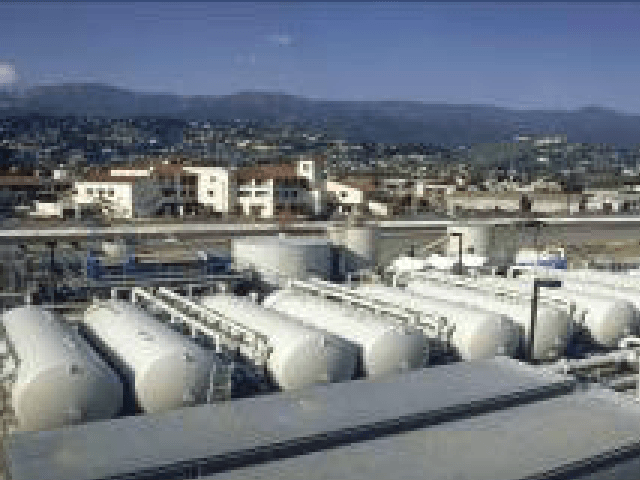The Santa Barbara City Council voted unanimously this week to approve a loan to reopen a mothballed desalination plant in an effort to battle California’s record four-year drought.
The city will spend $55 million to bring the Charles E. Meyer Desalination Facility back online, according to the Los Angeles Times.
The desalination plant was built in the late 1980s and early 1990s during another drought, but went unused and was ultimately decommissioned in 1992 after the drought ended.
In September, city officials voted to reopen the desalination plant when its main reservoir, Lake Cachuma, had receded to just 30 percent capacity. The facility will utilize reverse osmosis technology to filter salt from seawater and could provide Santa Barbara with 30-40 percent of its total water needs.
IDE Americas Inc. was awarded the contract to build the facility, according to local news station KYET. IDE is also building the largest desalination facility in the Western Hemisphere in Carlsbad near San Diego, a $1 billion project that is scheduled to be completed in November.
In addition to the $46.6 million in construction and design costs, IDE said upkeep of the facility would cost between $1.5 million-$4 million per year.
Many angry Santa Barbara residents reportedly packed City Hall before the vote to register complaints and concerns over the facility. Some expressed outrage over the cost of the project, while others were reportedly concerned with the environmental impact the plant could have on ocean life.
Water bills for Santa Barbara residents are reportedly expected to rise between $5-$10 per customer.
But city officials defended the plant and its cost, saying its reopening would serve as an insurance policy against future droughts.
“Desalination has been a last resort. The way the drought has continued these last four years, we are really getting at that last resort,” Mayor Helene Schneider told the Times. “We recognize it’s a big decision to make. We also recognize that desalination is not just for this particular drought – they are cyclical.”

COMMENTS
Please let us know if you're having issues with commenting.